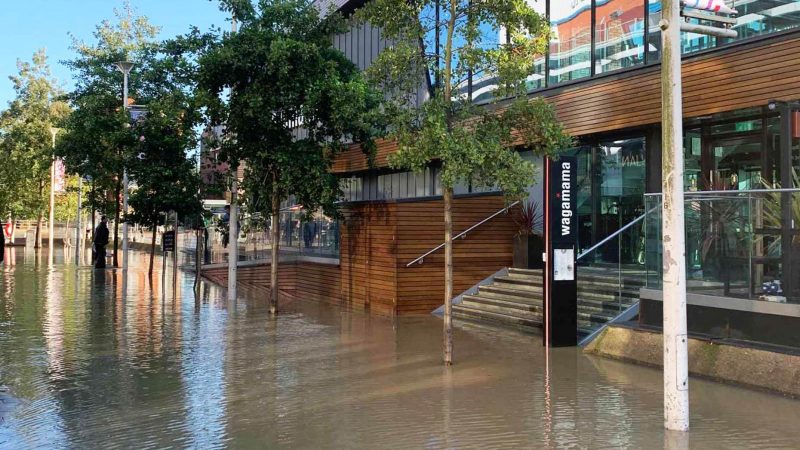
To advocate for greater tools and resources for urban authorities to enable cities to lead the charge in the effort to meet Net Zero.
To promote city-led renewable energy initiatives including onshore wind farms, solar panel farms, energy storage solutions, and long-term Net Zero energy grid initiatives.
That cities should support the national effort to decarbonise and protect the environment through decarbonisation of transport and prioritise investment in sustainable modes of travel e.g. walking & cycling infrastructure.
Cities should also support efforts to protect our climate through updating planning policy to ensure that buildings are built to the highest standards of energy efficiency.
To promote the value of urban greening including the preservation of natural spaces, urban on-street canopy cover, roof gardens and wetlands in development.
To promote the crucial need for climate resilience measures and adaptations to ensure that cities can withstand the effects of climate change.
Promote clean air initiatives which have a positive impact on city-dwellers health as well as supporting decarbonisation and climate protection objectives.
Key Cities are key part of unlocking some of the answers to the climate emergency across the UK. As of October 2024, all Key Cities members have either declared a climate emergency or have in place a strategy dedicated to climate resilience in their area. Many have adopted ambitious decarbonisation plans with net zero targets set as early as 2030. Our commitment to net-zero is embedded across all our responsibilities for infrastructure, economic growth, retrofitting, roles in waste and recycling, and providing green spaces. It is our priority to promote this approach among colleagues in local government as well as advocate for action that can further enable us to meet crucial climate objectives and reach Net Zero.
As one of the biggest contributors to climate change, producing over than 60% of global greenhouse gas emissions, cities must play a leading role in our fight against climate change. Cities are also more likely to suffer from the consequences of climate change. High temperatures, sea level rise, and extreme weather are all felt more acutely in urban areas.
We also strive to maximise our influence over our local communities; encouraging and enabling wider changes among local residents and businesses to reduce emissions, through local authorities’ investment and procurement decisions, planning responsibilities, and direct engagement with local people.
There are many co-benefits to be felt from adopting more
environmentally sustainable behaviours and through establishing low carbon
infrastructure. Whether it be the cleaner air we breathe or the way we travel having
a positive impact on our health and wellbeing – decarbonisation does not just
benefit the planet, it is better for our quality of life and overall wellbeing.
| Cookie | Duration | Description |
|---|---|---|
| cookielawinfo-checkbox-analytics | 11 months | This cookie is set by GDPR Cookie Consent plugin. The cookie is used to store the user consent for the cookies in the category "Analytics". |
| cookielawinfo-checkbox-functional | 11 months | The cookie is set by GDPR cookie consent to record the user consent for the cookies in the category "Functional". |
| cookielawinfo-checkbox-necessary | 11 months | This cookie is set by GDPR Cookie Consent plugin. The cookies is used to store the user consent for the cookies in the category "Necessary". |
| cookielawinfo-checkbox-others | 11 months | This cookie is set by GDPR Cookie Consent plugin. The cookie is used to store the user consent for the cookies in the category "Other. |
| cookielawinfo-checkbox-performance | 11 months | This cookie is set by GDPR Cookie Consent plugin. The cookie is used to store the user consent for the cookies in the category "Performance". |
| viewed_cookie_policy | 11 months | The cookie is set by the GDPR Cookie Consent plugin and is used to store whether or not user has consented to the use of cookies. It does not store any personal data. |
| Cookie | Duration | Description |
|---|---|---|
| _ga | 12 months | This cookie is used by Google Analytics to provide website usage information |